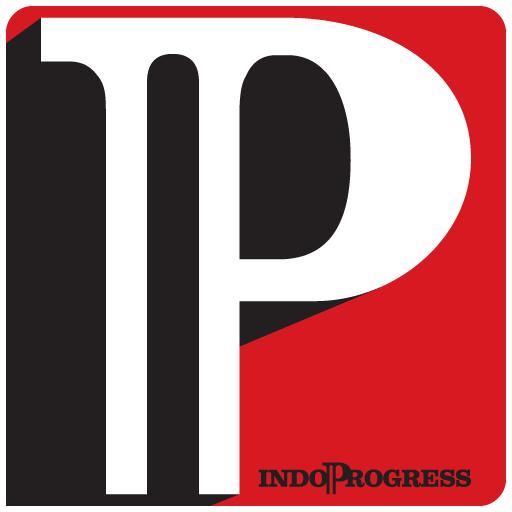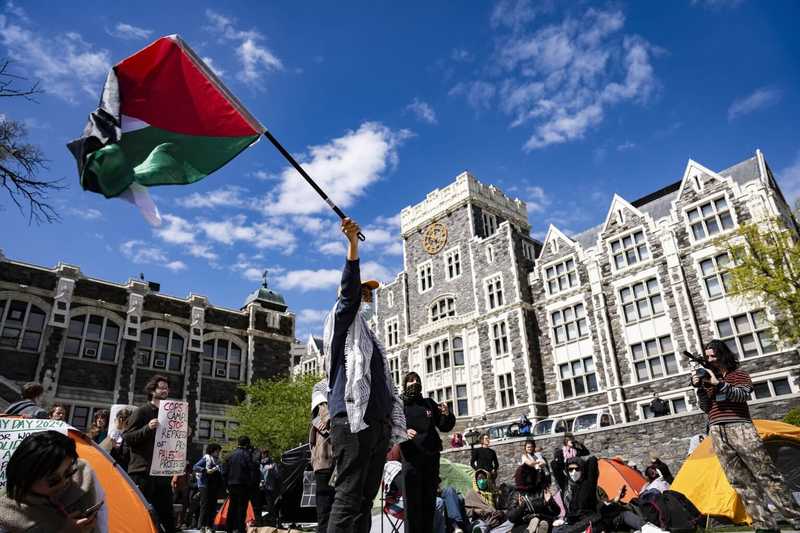
There is an emergency phase, when a wave of casualties threatens to overwhelm the medical system. The immediate priority at that point is to forestall disaster, to succor the ill and to provide essential supplies, in this case protective equipment, hospital beds, ICU units and ventilators. Then there is containment, the goal of which is to break the chain of transmission and bring the epidemic under control. In this phase the social priorities are two-fold: to maintain a large share of the population in secure quarantine while ensuring a steady flow of essential supplies, especially food, and of basic public services such as electricity, water, and sanitation, for as long as required to subdue the virus, or until there is an effective therapy or a vaccine. Finally, there will be an aftermath – a third stage when the economic consequences will unfold. These will demand we make far-reaching decisions, for good or evil – that we choose between disaster capitalism, maintained by violence, and a radical social and economic renewal.
Most of the Western countries are presently somewhere between the first and second phases. Hospital admissions have slowed and peak death rates may be near. Having narrowly handled the first phase, the West faces the still uncertain difficulties of the second. Only China and a handful of other places have so far progressed to the third stage, and with impressive speed and skill. In contrast, the longer travails of the West, and our peculiar social and economic conditions, all but guarantee that the aftermath here will force us to make stark and dramatic choices.
The pandemic has underlined the advantages of strong publicly-funded health systems, of compact medical supply chains, of advanced information and monitoring networks, of social organization, of credible leadership, and above all of unity and common purpose across the whole population in the face of the crisis. These are qualities that most western societies now lack to one degree or another—and in the case of the United States, lack almost entirely. We have degraded the public sphere in favor of lean, “efficient” but lethally fragile market structures committed to maximum profit and minimum cost. And we have tolerated the development of a politics dominated by lobbies and self-serving oligarchs surrounded by knaves and fools.
The fragility of Western systems seems to have shocked even the elites in charge. But at least it motivated them to rapid action in defense of their own interests, along with measures that range from effective support to mere gestures for the broader population. In the US the first response was massive loans to the corporate sector and semi-hidden tax breaks for the very wealthy, along with an expansion of unemployment insurance, cash payments to ordinary taxpayers, and some loans to small businesses, as well as theoretical moratoria on evictions, foreclosures and utility stoppages for the duration of the crisis.
But the crush of unemployment claims caused the state enrollment systems to crash; promised cash payments were largely token and haphazardly targeted; money for small businesses quickly ran out and evictions went right ahead, bans largely unenforced and often disregarded by aggressive landlords. The emergency measures included almost no assistance to state and local governments caught between collapsing revenues and soaring demands for public services, nor to the poor, the homeless or the undocumented. Thus debts incurred in the crisis are accumulating, and the entire decentralized federalism of the United States is threatened with a profound fiscal crisis, bordering on collapse, once the third stage is reached.
As the containment stage proceeds, logistical challenges are becoming more severe. The most urgent needs include large-scale testing, an effective mechanism for monitoring the infected and quarantine enforcement, and measures to preserve food and other essential supply chains. These supply chains are critical, and stressed by contamination and by labor shortages, by difficulties of adjustment from commercial to retail channels, and by other hazards including desperation on the part of beleaguered households. At the bottom of the chain, food banks are hit by soaring demand, declining donations and a shortage of volunteers. All this comes in addition to the impatience of families and breadwinners stuck at home, the stress of confinement and the increasing realization that many jobs will not return once the containment stage ends – and that incomes lost will never be fully recovered and debts will not be repaid.
Managing a long and successful containment phase would pose a challenge even to a competent government dedicated to the public purpose. For an accidental ruling class of self- absorbed oligarchs and predators, like that which currently rules in in the US, the UK, and elsewhere, it is a practical impossibility. Moreover, it is not desirable from a straightforwardly ideological point of view*.*A successfully-managed containment would show the possibility of a better-organized, mutually-supporting, socially-coherent community and a responsive, responsible, competent state. Like a successful war effort, it would feed the impulse to broader reforms. And that, in turn, could spell the demise of predatory power.
And so the conversation turns to an “opening up” under conditions that threaten an even more rapid and uncontrolled spread of the epidemic. The promised “return to normal” may punctuated by periodic crises, and by new shutdowns that cannot work because they will again be undermined by incompetence and inconsistency. This will lead inevitably to long-term quarantines for the elderly and those at risk for other reasons, condemned to their rooms until the epidemic fades on its own or the virus comes for them in their turn. But a rapid return to normal, however illusory, is the only way to preserve the legitimacy of debt contracts, the capital structure of many banks and businesses, and the rights of creditors and landlords, and thus the foundations of their economic power.It is therefore the political strategy of the ruling elites.
The very failure to manage the containment phase competently plays into this strategy, for it increases pressure to end it before the job is done. We now learn that the mismanagement of containment is not a bug, but a feature of policy — at least in the United States. We see this explicitly in the refusal, as we write, of the White House and Senate to add fiscal support for state and local governments; the openly-admitted objective is to force an end to quarantines, lock-downs and the social distancing necessary to save lives. Thus the illnesses and deaths still to come are the fully-foreseen price of maintaining the existing system. Of course, as the United States takes this route, and barring early development of a therapy or a vaccine or the attenuation of the epidemic on its own, the containment strategies of more sensible countries, however imperfect in themselves, will be exceptionally hard to maintain.
"There are two possible paths. They are as different as the brutal suppression of organized dissent, and the social reconstruction of an entire system on grounds of public purpose, meeting the challenges of health, environment and security for the whole population."
Progressives and all decent people thus face imperatives on three levels. The first is to fight for competent management of the containment phase, in every country on its own terms but above all in the United States, now the epicenter of the pandemic and the principal policy battleground. It is necessary to fight it out on this line for as long as it may take, win or lose. It is necessary to make the political price of reckless reopening as high as possible, and to reward every effort, at the local and state levels, to manage the consequences so as to minimize the damage as best one can. For this, all support must be given to dedicated and competent officials, beleaguered and overmatched though they are, while opposing and exposing the willful incompetence, amounting to sabotage, of predators at the federal level and in some of the statehouses.
The second imperative is to drive home the fact that the post-pandemic future cannot resemble the immediate past. In every sphere of economic life, things will be different. Some industries – airlines, hotels, resorts, cruise ships – will shrink because their clientele will be poorer, more careful about risk, and less interested in distant diversions. Events formerly requiring large crowds – sporting events, concerts, movies and plays – will go largely on-line or disappear.
Many other sectors – restaurants, bars, cafés, service establishments, will adapt via new health protocols, social distancing, or they too will disappear. Perhaps most important, crucial utilities, and public services like education, health care and public safety will not be financially sustainable on their present funding models.
So we come to the third and most encompassing imperative. This is to frame the choice that will govern the character of the world to come. There are two possible paths. They are as different as European fascism and the American New Deal. They are as different as the brutal suppression of organized dissent, and the social reconstruction of an entire system on grounds of public purpose, meeting the challenges of health, environment and security for the whole population.
One path would preserve the existing hierarchies and the burden of existing contracts. Along this path, debts will be enforced, vulture funds will prowl for cheap assets, transforming homeowners into renters and renters into the homeless. Foreclosures and evictions will mount to the millions, armies of the jobless will roam the streets, encampments will become the new Hoovervilles. Unable to survive on public funds, public schools, public universities and public services will be privatized; they will become expensive, exclusive and unavailable to the majority. Health care will be largely uninsured, and even less accessible than before. Elections will be so disrupted, and so dominated by monied propaganda, as to lose their meaning. For the richest few, life will go on as before. But no one apart from the well-armed and well-isolated will be safe.
On the other path, there will be a general relief from unpayable debts.Families will be secure and safe in their homes, rents and mortgages will be written down, health care will finally become a universal public good, utilities will be maintained and the federal government will come to the financial support of schools, universities, and the public services of states, cities and towns. In this world, millions will be hired and trained to provide the public health services – temperature monitoring, contact tracing, sanitization – that is necessary to keep the virus at bay and to confront successors as they arise. Millions more will be put to work in crucial services, maintaining the supply chains for food and other essentials, in conditions that are as safe as possible, and paid a living wage. In this world, there will be strategic direction toward social and environmental goals, led by a state determined and able to ensure that key sectors and companies serve the public. Through public investment in national laboratories and support for non-profit research centers, science and technology will again become the servants of public purpose.
These are the effective measures that can permit us to survive. In practice, getting there requires fighting and winning a political battle. For this, progressives must come to grips with the core of the neoliberal dispensation. Economic neoliberalism and the cult of free markets did not rise and hold strictly on their own; they were buttressed in the West by genuine gains in personal and social freedoms. The predatory economic model was tolerable for many people precisely because the focus on individualism lifted barriers of repression and conformity and created at least the impression of opportunities, of freedoms previously denied but now permitted and mediated by the market.
This alliance is now untenable, and it is necessary to move beyond it. What the market appeared to provide, a material base for cultural diversity, the collapse of markets has yanked away. So it will be necessary for those attracted to that alliance for its recognition of long-denied rights to detach themselves, and to join, as a matter of common survival, an economic program founded on two critical points. Cultural diversity can be preserved, and it can be extended – but at this juncture only through a new alliance for radical progressive economic reform.
Let us recognize that our goals are social. They are about the common good and the common wealth. Equality is part of this. But economic inequality under money-market capitalism, though undoubtedly a scourge in itself, is only a symptom of a deeper problem. Laments about inequality recently fashionable even in elite circles have a hidden premise – they accept that the right measure of social health is the fairness of the distribution of private goods, and of the means to acquire them. This is not so and has never been so. No distribution of purchasing power, however improved, gives anyone the capacity to guarantee the elements of health or access even to safety and to food – let alone hope for a long life and a secure retirement. These things must be provided socially, by collective effort, for the benefit of all. The deeper enemy is not inequality, but precarity, insecurity, instability, anxiety and fear.
"Some call it socialism. Some call it democratic socialism. Some call it social democracy. Some call it pragmatism. We call it what it is: necessary, now."
More broadly, let us recognize that free-market capitalism is not the key to prosperity, nor to freedom. What drives prosperity are science, technology, engineering and effective organization, including public investment and social insurance. What drives freedom is a commitment to tolerance, to the rule of law and to human rights. These can be combined without ceding power to the oligarchs who have come to control the capitalist world. There are better models in the history of the United States, of the New Deal and Great Society, as there are in the social democratic Europe of the postwar years. Capitalism did not dominate those societies: public purpose and democratic aspirations were the great motive forces. What was possible once can again be made to happen as the conditions demand. Some call it socialism. Some call it democratic socialism. Some call it social democracy. Some call it pragmatism. We call it what it is: necessary, now.
So the task is – as at the start of Franklin Roosevelt's New Deal – to conquer fear, anxiety, instability, insecurity, and precarity. The task is to find the right solutions to our problems, and to pursue them with all the imagination and resources we can together command. This, and this alone, will open the door to the next task, which is to build a just and sustainable economic and social system for the next generation.
The Green New Deal calls for precisely this transformation. The program of the Green New Deal lays out a path toward energy that is renewable and sustainable, toward patterns of consumption within the carrying capacity of the planet, toward systems of mutual support, towards guaranteed jobs for those who want them and guaranteed security for all.
In the world to come, there will be many millions seeking useful work. And there will be opportunities for many millions to undertake the transformation of energy systems, to build out an advanced information infrastructure, to reconstruct education and culture and free time, to restructure our lives to make them decent and rewarding and safe and secure on a planet that may yet, for a time, provide a livable home.
The task is to bring these two things together, and to make a better world happen. Science, technology and engineering can tell us how best to proceed. The economics are possible; as Keynes wrote, what we can actually do, we can afford. The politics will be a struggle, but it is a struggle that must be won. The pandemic has dislodged the old system. It has brought the world abruptly into focus. And so it has presented us all with the stark necessity of new thinking, political struggle, and the hard work of radical reform.
Photo: Jimmy Emerson






